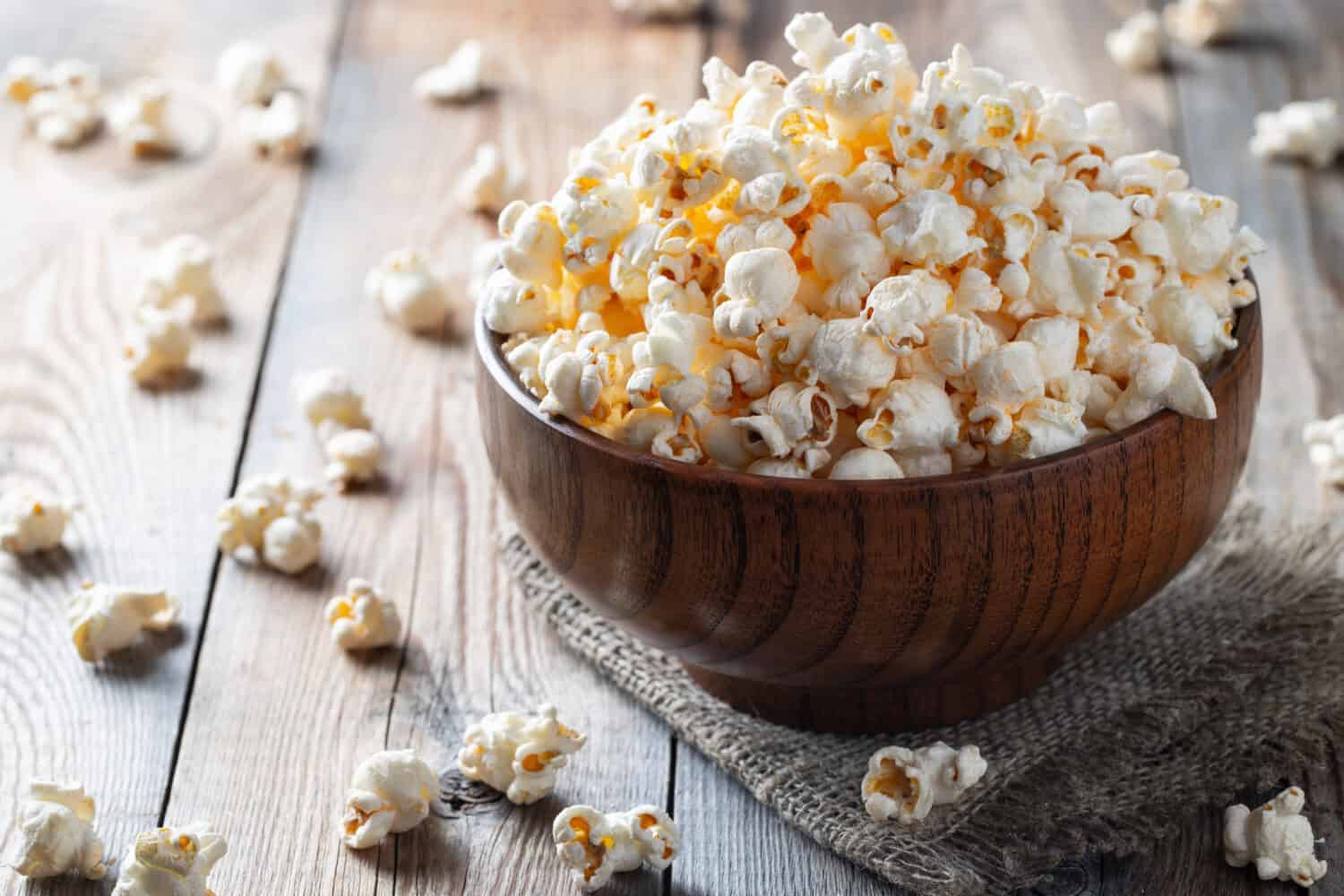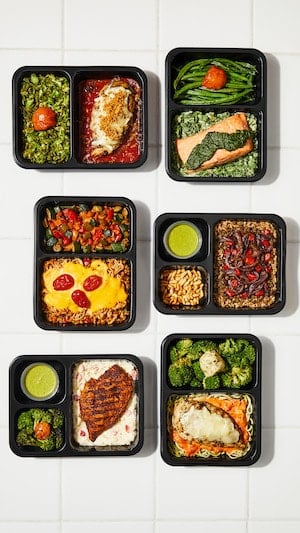Movie nights are not complete without a big bowl of popcorn, but how healthy is popcorn, actually? Well, the answer is it depends. Popcorn has many health benefits, but the butter, oil, and salt we add to it reduces these benefits. These popular toppings change the nutritional value of popcorn while also adding calories. Furthermore, eating only a little popcorn is impossible, so our tendency to overeat in one sitting also impacts its healthiness.
So, let's take a closer look at popcorn's nutritional benefits and its healthiest and unhealthiest variations. Additionally, we will recommend the best ways to make the most nutritious and tastiest popcorn at home. We will also share some of our favorite popcorn recipes, which are sure to please the entire family. Finally, we will explore the origins and history of this tasty snack.
The History of Popcorn
While most of us associate popcorn with going to the cinema or binge-watching Netflix, popcorn has a long history. In fact, evidence suggests it is one of the oldest snacks in the world. Indigenous peoples in Mexico and Peru were the first to make popcorn. Archeologists have found evidence that popcorn dates back to 3600 BC.
In the United States, Native American tribes such as the Cherokees and Iroquois grew corn and made popcorn. It was not only a popular food, but there is evidence that these tribes used popcorn in ceremonies. During the 19th century, popcorn became popular at carnivals and fairs.
When the popcorn machine was invented in the late 19th century, it became synonymous with movie theaters. Since popcorn was cheap, cinema owners began serving it during the Great Depression to add profit to struggling theaters. Furthermore, the buttery popcorn smell we now associate with the movies drew people inside the theater. From then on, popcorn became essential to the moviegoer's experience.

During the Great Depression, theaters began serving popcorn to theatergoers because it was cheap, and the popcorn smell drew people inside.
©bbernard/Shutterstock.com
The Health Benefits of Popcorn
So, what are the health benefits of popcorn? Popcorn is a whole grain known to reduce the risk of heart disease and hypertension. Moreover, popcorn is a high-fiber snack with many antioxidants, including folate, niacin, and thiamin. It also contains vitamins such as Vitamin B6, Vitamin A, and Vitamin E. Popcorn is also naturally low in calories and helps curb the appetite.
Air-popped popcorn is one of the healthiest options. Eating three cups of air-popped popcorn will give you several essential nutrients. It also low in sugar. Three cups of air-popped popcorn contains the following nutritional values.
- 93 Calories
- 3g of Protein
- 3.6g of Fiber
- 0.02g of Sugar
If you add butter to popcorn, it significantly increases the calorie and fat content. One tablespoon of butter contains around 102 calories and twelve grams of fat. Movie theater-style popcorn usually has oil and butter. Depending on the amount and type of oil used, one to two tablespoons will add 120 to 240 calories and fourteen to twenty-eight grams of fat. Adding caramel or sweet flavors adds more calories and fat, but the amount varies depending on the flavor and brand.
The Downsides of Popcorn
While plain popcorn is not unhealthy, the type of seasoning used may impact its healthiness. While generous amounts of butter and oil make popcorn delicious, they also add calories and saturated fat. Salt is also a delicious seasoning; however, high sodium intake causes health issues such as hypertension. Adding caramel and chocolate also adds calories and sugar to popcorn.
There are also concerns regarding microwavable popcorn. Many microwavable popcorn bags contain perfluorooctanoic acid (PFOA), a synthetic chemical compound linked to cancer, liver damage, and thyroid disease. The concern about this chemical is another reason to use air poppers or make stovetop popcorn.
Popcorn is also hard on your teeth. The hard kernels may damage tooth enamel. Also, the kernels tend to get stuck between the teeth and the gums. Biting down on unpopped kernels can chip or crack teeth. If you have dental work, you may have to take care when enjoying popcorn. It is also best to brush and floss soon after eating to remove any stuck debris.
Finally, overeating popcorn may cause bloating and gas. This side effect is usually due to the way the body processes corn. Additionally, the small amount of oil in popcorn may trigger gastroesophageal reflux disease (GERD) and heartburn. Doctors advise that you drink lots of fluids and watch your portions to avoid these digestive issues.

Our tendency to overeat popcorn often leads to digestion issues, including bloating and heartburn.
©Mallika Home Studio/Shutterstock.com
Making Popcorn at Home
While microwavable popcorn is easy, making stovetop popcorn is fun and not complicated. Here is how to make stovetop popcorn.
- You will need a fairly large pot with a lid so the kernels have plenty of room to pop.
- Heat the pot over medium heat. Pour in a half a cup of popcorn kernels. (You can add more later, if needed.) Add one to two tablespoons of oil and close the lid.
- When the popcorn starts to pop continuously, turn off the burner and let the steam escape from the lid.
- Add butter or oil, if desired, while the popcorn is still hot. After coating the popcorn, add dried seasonings such as salt and pepper.
Other popular toppings include olive oil, chile flakes, grated cheese, paprika, or garlic powder. For a spicy twist, you can also add curry powder or Sriracha. For a vegan option, nutritional yeast will add a cheesy, umami flavor to your popcorn. You can also give your popcorn a sweet twist by adding caramel sauce.
Tips For Healthier Popcorn
So, how can you make popcorn healthier yet still delicious? Air popping it with only a small amount of oil keeps popcorn healthy. Additionally, choose oils like olive or coconut oil because both of these oils are considered heart-healthy. Avocado oil is also an excellent choice for healthier popcorn. However, it is best to use any oil in moderation.
Instead of heavy salt and butter, experiment with herbs and spices. There are many delicious options that will not add the fat and calories of salt and butter. Sea salt, black pepper, and homemade spice blends using ingredients like tumeric, coriander, and cumin are solid options. And while it is challenging, try to be mindful of portion control and avoid overeating.
Popcorn Recipes
Now that you understand the pros and cons of popcorn, here are some delicious varieties of popcorn for your next family or movie night.
- This Cinnamon-Sugar Popcorn recipe is perfect for those with a sweet tooth.
- Inspired by the classic bagel, this Everything Bagel Microwave Popcorn is delicious.
- This Skinny Butter Popcorn only has three ingredients.
- These Naturally-Sweetened Honey Popcorn Balls are made with store bought popcorn.
- Perfect for fall and winter family gatherings, this Apple Cinnamon Popcorn is sure to be a hit.

Not only is making popcorn at home easy and fun, but the flavor options are endless because popcorn is such a versatile snack.
©jittawit21/Shutterstock.com
In Summary
Popcorn is a healthy whole-grain food containing a combination of antioxidants and vitamins. Typically, the seasonings and toppings added to popcorn give this delicious snack its downsides, including a higher fat and caloric intake.
It is best to air-pop or prepare it with healthy seasonings like herbs or spices. Furthermore, choose healthier oils such as olive, coconut, or avocado oil. Rather than excessive amounts of butter and salt, choose healthier herbs and spices that add taste without the nutritional downsides. Sea salt, black pepper, chili pepper, and cinnamon provide flavor without adding fat or calories. Popcorn is an incredibly versatile snack that can be enjoyed as part of a balanced diet.
The image featured at the top of this post is ©VasiliyBudarin/Shutterstock.com

